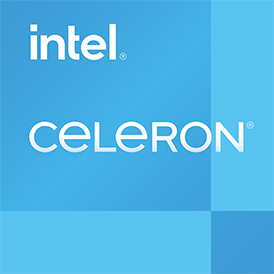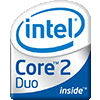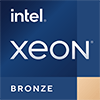
Intel Celeron N4020 Benchmark, Test and specs
Last updated:
The Intel Celeron N4020 has 2 cores with 2 threads and is based on the 9. gen of the Intel Celeron series. The processor uses a mainboard with the BGA 1090 socket and was released in Q4/2019. The Intel Celeron N4020 scores 486 points in the Geekbench 5 single-core benchmark. In the Geekbench 5 multi-core benchmark, the result is 896 points.

| Name: | Intel Celeron N4020 |
|---|---|
| Family: | Intel Celeron (165) |
| CPU group: | Intel Celeron J4000/N4000/N5000 (11) |
| Architecture: | Gemini Lake |
| Segment: | Mobile |
| Generation: | 9 |
| Predecessor: | -- |
| Successor: | -- |
CPU Cores and Base Frequency
The Intel Celeron N4020 has 2 CPU cores and can calculate 2 threads in parallel. The clock frequency of the Intel Celeron N4020 is 1.10 GHz (2.80 GHz). The number of CPU cores greatly affects the speed of the processor and is an important performance indicator.
| CPU Cores / Threads: | 2 / 2 |
|---|---|
| Core architecture: | normal |
| Cores: | 2x |
| Hyperthreading / SMT: | No |
|---|---|
| Overclocking: | No |
| Frequency: | 1.10 GHz |
| Turbo Frequency (1 Core): | 2.80 GHz |
| Turbo Frequency (2 Cores): | 2.70 GHz |
Internal Graphics
The Intel Celeron N4020 has integrated graphics, called iGPU for short. Specifically, the Intel Celeron N4020 uses the Intel UHD Graphics 600, which has 96 texture shaders and 12 execution units. The iGPU uses the system's main memory as graphics memory and sits on the processor's die.
| GPU name: | Intel UHD Graphics 600 |
|---|---|
| GPU frequency: | 0.20 GHz |
| GPU (Turbo): | 0.65 GHz |
| Compute units: | 12 |
| Shader: | 96 |
| Hardware Raytracing: | No |
| Release date: | Q4/2017 |
| Max. displays: | 3 |
|---|---|
| Generation: | 9.5 |
| Direct X: | 12 |
| Technology: | 14 nm |
| Max. GPU Memory: | 8 GB |
| Frame Generation: | No |
Hardware codec support
A photo or video codec that is accelerated in hardware can greatly accelerate the working speed of a processor and extend the battery life of notebooks or smartphones when playing videos.
| h265 / HEVC (8 bit): | Decode / Encode |
|---|---|
| h265 / HEVC (10 bit): | Decode / Encode |
| h264: | Decode / Encode |
| VP8: | Decode / Encode |
| VP9: | Decode / Encode |
| AV1: | No |
|---|---|
| AVC: | Decode / Encode |
| VC-1: | Decode |
| JPEG: | Decode / Encode |
Memory & PCIeThe processor can use up to 8 GB memory in 2 (Dual Channel) memory channels. The maximum memory bandwidth is 38.4 GB/s. The memory type as well as the amount of memory can greatly affect the speed of the system. |
|
| Memory type: | Memory bandwidth: |
|---|---|
| LPDDR4-2400 DDR4-2400 | 38.4 GB/s 38.4 GB/s |
| Max. Memory: | 8 GB |
| Memory channels: | 2 (Dual Channel) |
| ECC: | No |
| PCIe: | 2.0 x 6 |
| PCIe Bandwidth: | 3.0 GB/s |
Thermal ManagementThe thermal design power (TDP for short) of the processor is 6 W. The TDP specifies the necessary cooling solution that is required to cool the processor sufficiently. The TDP usually gives a rough idea of the actual power consumption of the CPU. |
|
|---|---|
| TDP (PL1 / PBP): | 6 W |
| TDP (PL2): | -- |
| TDP up: | -- |
| TDP down: | 4.8 W |
| Tjunction max.: | 105 °C |
Technical details
The Intel Celeron N4020 is made in 14 nm. The smaller the manufacturing process of a CPU, the more modern and energy-efficient it is. Overall, the processor has 4.00 MB cache. A large cache can greatly speed up the processor's speed in some cases such as games.
| Technology: | 14 nm |
|---|---|
| Chip design: | Monolithic |
| Socket: | BGA 1090 |
| L2-Cache: | -- |
| L3-Cache: | 4.00 MB |
| AES-NI: | Yes |
| Operating systems: | Windows 10, Windows 11, Linux |
| Virtualization: | VT-x, VT-x EPT, VT-d |
|---|---|
| Instruction set (ISA): | x86-64 (64 bit) |
| ISA extensions: | SSE4.1, SSE4.2 |
| Release date: | Q4/2019 |
| Release price: | -- |
| Part Number: | -- |
| Documents: | Technical data sheet |
Rate this processor
Benchmark results

The benchmark results for the Intel Celeron N4020 have been carefully checked by us. We only publish benchmark results that have been created by us or that have been submitted by a visitor and then checked by a team member. All results are based on and fullfill our benchmark guidelines.
Geekbench 5, 64bit (Single-Core)
Geekbench 5 is a cross plattform benchmark that heavily uses the systems memory. A fast memory will push the result a lot. The single-core test only uses one CPU core, the amount of cores or hyperthreading ability doesn't count.

|
AMD A8-6500
4C 4T @ 4.10 GHz |
||

|
Qualcomm Snapdragon 850
8C 8T @ 2.95 GHz |
||

|
Intel Celeron J4025
2C 2T @ 2.90 GHz |
||
|
|
Intel Celeron N4020
2C 2T @ 2.80 GHz |
||

|
Intel Core2 Duo E8600
2C 2T @ 3.33 GHz |
||

|
Intel Celeron N4020C
2C 2T @ 2.80 GHz |
||

|
Intel Xeon Bronze 3106
8C 8T @ 1.70 GHz |
||
Geekbench 5, 64bit (Multi-Core)
Geekbench 5 is a cross plattform benchmark that heavily uses the systems memory. A fast memory will push the result a lot. The multi-core test involves all CPU cores and taks a big advantage of hyperthreading.

|
Intel Core 2 Quad Q8200
4C 4T @ 2.33 GHz |
||

|
Qualcomm Snapdragon 820
4C 4T @ 2.15 GHz |
||

|
Intel Core i5-2467M
2C 4T @ 2.00 GHz |
||
|
|
Intel Celeron N4020
2C 2T @ 2.70 GHz |
||
|
|
HiSilicon Kirin 659
8C 8T @ 2.36 GHz |
||

|
Intel Pentium Gold 4415Y
2C 4T @ 1.70 GHz |
||

|
MediaTek Helio G35
8C 8T @ 2.30 GHz |
||
Geekbench 6 (Single-Core)
Geekbench 6 is a benchmark for modern computers, notebooks and smartphones. What is new is an optimized utilization of newer CPU architectures, e.g. based on the big.LITTLE concept and combining CPU cores of different sizes. The single-core benchmark only evaluates the performance of the fastest CPU core, the number of CPU cores in a processor is irrelevant here.

|
MediaTek Helio G80
8C 8T @ 2.00 GHz |
||
|
|
HiSilicon Kirin 960
8C 8T @ 2.40 GHz |
||

|
Intel Pentium 2020M
2C 2T @ 2.40 GHz |
||
|
|
Intel Celeron N4020
2C 2T @ 2.80 GHz |
||

|
Intel Celeron N4020C
2C 2T @ 2.80 GHz |
||

|
Intel Pentium B970
2C 2T @ 2.30 GHz |
||

|
Intel Celeron J4005
2C 2T @ 2.70 GHz |
||
Geekbench 6 (Multi-Core)
Geekbench 6 is a benchmark for modern computers, notebooks and smartphones. What is new is an optimized utilization of newer CPU architectures, e.g. based on the big.LITTLE concept and combining CPU cores of different sizes. The multi-core benchmark evaluates the performance of all of the processor's CPU cores. Virtual thread improvements such as AMD SMT or Intel's Hyper-Threading have a positive impact on the benchmark result.

|
Intel Pentium 2020M
2C 2T @ 2.40 GHz |
||

|
MediaTek Helio A25
8C 8T @ 1.80 GHz |
||

|
Intel Celeron J4025
2C 2T @ 2.90 GHz |
||
|
|
Intel Celeron N4020
2C 2T @ 2.70 GHz |
||

|
Intel Core i5-2537M
2C 4T @ 1.40 GHz |
||

|
Intel Pentium B980
2C 2T @ 2.40 GHz |
||

|
Intel Celeron G1610T
2C 2T @ 2.30 GHz |
||
iGPU - FP32 Performance (Single-precision GFLOPS)
The theoretical computing performance of the internal graphics unit of the processor with simple accuracy (32 bit) in GFLOPS. GFLOPS indicates how many billion floating point operations the iGPU can perform per second.

|
Intel Celeron N3350
Intel HD Graphics 500 @ 0.65 GHz |
||

|
Intel Celeron N4000
Intel UHD Graphics 600 @ 0.65 GHz |
||

|
Qualcomm Snapdragon 625
Qualcomm Adreno 506 @ 0.65 GHz |
||
|
|
Intel Celeron N4020
Intel UHD Graphics 600 @ 0.65 GHz |
||
|
|
HiSilicon Kirin 955
ARM Mali-T880 MP4 @ 0.90 GHz |
||
|
|
HiSilicon Kirin 950
ARM Mali-T880 MP4 @ 0.90 GHz |
||
|
|
HiSilicon Kirin 810
ARM Mali-G52 MP6 @ 0.85 GHz |
||
Estimated results for PassMark CPU Mark
Some of the CPUs listed below have been benchmarked by CPU-monkey. However the majority of CPUs have not been tested and the results have been estimated by a CPU-monkey’s secret proprietary formula. As such they do not accurately reflect the actual Passmark CPU mark values and are not endorsed by PassMark Software Pty Ltd.

|
AMD GX-420GI
4C 4T @ 2.00 GHz |
||

|
MediaTek Helio G35
8C 8T @ 2.30 GHz |
||

|
Intel Core i5-4210Y
2C 4T @ 1.90 GHz |
||
|
|
Intel Celeron N4020
2C 2T @ 2.70 GHz |
||

|
Intel Core i5-4200Y
2C 4T @ 1.90 GHz |
||

|
AMD Athlon II X3 420e
3C 3T @ 2.60 GHz |
||

|
Intel Pentium 3560M
2C 2T @ 2.40 GHz |
||
CPU-Z Benchmark 17 (Multi-Core)
The CPU-Z benchmark measures a processor's performance by measuring the time it takes the system to complete all benchmark calculations. The faster the benchmark is completed, the higher the score.

|
Intel Core2 Duo E7300
2C 2T @ 2.66 GHz |
||

|
Intel Pentium E5300
2C 2T @ 2.60 GHz |
||

|
Intel Celeron E3400
2C 2T @ 2.60 GHz |
||
|
|
Intel Celeron N4020
2C 2T @ 1.10 GHz |
||

|
Intel Celeron J4005
2C 2T @ 2.00 GHz |
||

|
Intel Celeron E3300
2C 2T @ 2.50 GHz |
||

|
Intel Pentium E5200
2C 2T @ 2.50 GHz |
||
Cinebench R15 (Single-Core)
Cinebench R15 is the successor of Cinebench 11.5 and is also based on the Cinema 4 Suite. Cinema 4 is a worldwide used software to create 3D forms. The single-core test only uses one CPU core, the amount of cores or hyperthreading ability doesn't count.

|
AMD A12-9720P
4C 4T @ 3.60 GHz |
||

|
Intel Core i5-4200Y
2C 4T @ 1.90 GHz |
||

|
Intel Xeon E5-2690 v2
10C 20T @ 3.60 GHz |
||
|
|
Intel Celeron N4020
2C 2T @ 2.80 GHz |
||

|
Intel Celeron N4020C
2C 2T @ 2.80 GHz |
||

|
Intel Celeron N4000C
2C 2T @ 2.60 GHz |
||

|
Intel Xeon Bronze 3106
8C 8T @ 1.70 GHz |
||
Cinebench R15 (Multi-Core)
Cinebench R15 is the successor of Cinebench 11.5 and is also based on the Cinema 4 Suite. Cinema 4 is a worldwide used software to create 3D forms. The multi-core test involves all CPU cores and taks a big advantage of hyperthreading.

|
Intel Core i3-4020Y
2C 4T @ 1.50 GHz |
||

|
Intel Pentium N3510
4C 4T @ 2.40 GHz |
||

|
Intel Pentium N3700
4C 4T @ 2.40 GHz |
||
|
|
Intel Celeron N4020
2C 2T @ 2.70 GHz |
||

|
Intel Celeron N4020C
2C 2T @ 2.80 GHz |
||

|
Intel Celeron N4000C
2C 2T @ 2.60 GHz |
||

|
Intel Pentium N3520
4C 4T @ 2.42 GHz |
||
Benchmarks

Geekbench 5 (SC)
2,488 entries
2,488 entries

Geekbench 5 (MC)
2,461 entries
2,461 entries

Geekbench 6 (SC)
1,755 entries
1,755 entries

Geekbench 6 (MC)
1,703 entries
1,703 entries

FP32 SP (iGPU)
2,026 entries
2,026 entries

PassMark CPU-Mark
2,392 entries
2,392 entries

CPU-Z Benchmark 17 (MC)
733 entries
733 entries

Cinebench R15 (SC)
1,106 entries
1,106 entries

Cinebench R15 (MC)
1,101 entries
1,101 entries
Description of the processor
The Intel Celeron N4020 is the ninth generation of Intel Celeron processors and was released by Intel in the fourth quarter of 2019. This processor is a model for the mobile sector, with which it is mainly installed in smaller entry-level notebooks and mini PCs. It is based on the BGA 1090 socket, so you can see that it can only be used when it is soldered.It is based on the "Gemini Lake" architecture that is current in 2019 and is manufactured with a structure width of 10 nanometers. The level 3 cache of the Intel Celeron N4020 is 4.00 megabytes in size and the TDP is a very low 6 watts, which indicates a very economical but not very powerful CPU.
The processor has 2 physical cores and does not support Hyperthreading. The standard clock frequency of the Intel Celeron N4020 is 1.10 gigahertz and the maximum turbo clock is 2.80 gigahertz. However, the processor only achieves this high clock rate when one of the two cores is loaded. If both cores are loaded at the same time, the CPU still achieves a maximum clock frequency of 2.70 gigahertz.
The Intel Celeron N4020 achieves a single-core score of 486 points and a multi-core score of 896 points in Geekbench 5. It achieves 75 points (single-core) and 144 points (multi-core) in Cinebench R15.
As with all processors from the mobile sector, an internal graphics unit is built into the Intel Celeron N4020. The Intel UHD Graphics 600 is used here. This graphics unit has a standard clock of 0.2 gigahertz and a maximum dynamic clock frequency of 0.65 gigahertz. With its 12 execution units and 96 shaders, it achieves an FP32 (single precision) computing power of 125 GigaFLOPS.
The CPU has 2 memory channels with which up to 8 gigabytes of DDR4-2400 RAM can be operated.
Popular comparisons
back to index






